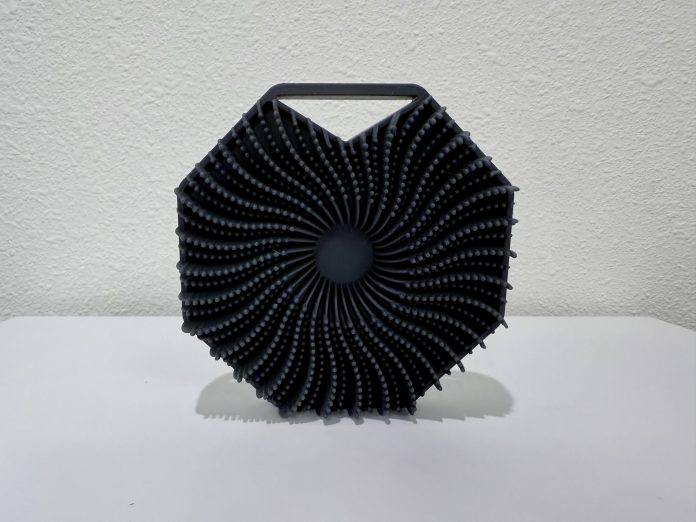Reducing waste isn’t just a trend—it’s a responsibility we all share. When it comes to our beauty routines, the shift toward eco-friendly practices is more important than ever. Hair care, in particular, can generate significant waste, from plastic shampoo bottles to single-use products. But what if we could maintain luscious locks while being kinder to the planet?
Zero-waste hair care offers a simple yet impactful way to embrace sustainability without sacrificing quality. By making small changes, like switching to refillable shampoo options or exploring solid hair bars, we can reduce our environmental footprint while still indulging in self-care. Let’s dive into practical tips that’ll help us create a greener beauty routine, one strand at a time.
Understanding Zero-Waste Hair Care
Zero-waste hair care focuses on reducing plastic and product waste in daily routines by utilizing sustainable, eco-friendly alternatives. Traditional hair care products often come in single-use plastic bottles, contributing to global waste. Shifting to zero-waste options minimizes this impact while preserving hair health.
Key elements include using minimal-packaging products, adopting refillable solutions, and choosing plastic free options like solid hair bars. Hair bars, such as shampoo and conditioner bars, are formulated without water and come in recyclable or compostable packaging. They last longer than liquid products, making them cost-effective and environmentally responsible.
Plastic-free beauty in hair care involves avoiding unnecessary synthetic materials. Opt for wooden or bamboo combs, reusable hair ties, and metal razors to replace plastic versions. These alternatives lower landfill contributions and promote a sustainable lifestyle.
Making eco-friendly choices aligns with the zero-waste philosophy. Selecting brands committed to sustainability and reducing carbon footprints strengthens our efforts toward greener beauty practices.
Benefits Of Eco-Friendly Beauty Practices

Embracing eco-friendly beauty practices offers significant advantages for both the planet and individuals. These benefits highlight the importance of sustainable choices in our everyday routines.
Environmental Impact
Eco-friendly beauty reduces plastic waste, a major contributor to global pollution. Products like solid hair care bars eliminate the need for single-use plastic bottles, minimizing the volume of non-biodegradable material ending up in landfills and oceans. Refilling shampoo and conditioner containers further cuts down plastic production and waste.
Sustainable manufacturing processes in eco-friendly brands conserve resources by utilizing renewable materials such as bamboo and recycled metals. For example, wooden combs and bamboo brushes replace their plastic counterparts, decreasing our carbon footprint. Supporting these products encourages brands to adopt environmentally conscious practices.
By choosing plastic-free beauty items and minimal-packaging alternatives, like hair bars and refillable jars, we actively reduce our environmental impact and promote a circular economy. Small changes in our routines contribute to long-term ecological benefits.
Personal Health Advantages
Switching to eco-friendly beauty products reduces exposure to harsh chemicals. Many sustainable brands prioritize natural, non-toxic ingredients like essential oils and plant-based extracts. These alternatives avoid skin irritation and allergic reactions caused by synthetic fragrances and sulfates common in traditional products.
Plastic-free beauty further improves personal health by excluding harmful microplastics. Standard hair products often contain microbeads or release plastic particles during use, which can adversely affect the scalp and skin. Solid hair care bars and refillable solutions eliminate such concerns.
Eco-friendly practices discourage environmental toxins that can contaminate our water supply. Plastic-derived chemicals often leach into water systems, affecting overall human health. By supporting sustainable brands and products, we foster a safer, healthier routine while protecting our well-being along with the planet.
Simple Tips For Zero-Waste Hair Care
Adopting zero-waste hair care helps reduce plastic waste and promotes sustainable beauty practices. Small adjustments in routines can make a significant environmental impact.
Choose Sustainable Hair Care Products
Sustainable products minimize environmental harm and often have eco-friendly ingredients. Look for hair care items from brands using biodegradable packaging or recyclable materials. Certified organic and vegan certifications ensure products meet sustainable standards. For example, brands like Ethique and Plaine Products offer refillable and sustainable solutions. Choose products manufactured with renewable energy or carbon-neutral operations to lessen the environmental footprint. Avoid chemical-laden options to protect both hair health and the ecosystem. Reading ingredient lists and product labels aids in selecting the most sustainable solutions.
Ditch Single-Use Plastics
Eliminating single-use plastics reduces landfill contributions. Replace plastic shampoo bottles with refillable containers or bulk-purchase items, which allow reusing existing packaging while conserving resources. Select reusable alternatives for daily grooming, such as bamboo combs or stainless steel razors. Avoid plastic-wrapped items like disposable caps, opting for cloth-lined caps instead. Brands offering refill stations for liquid hair care products further cut down on plastic use. Transitioning to this approach significantly reduces reliance on non-recyclable materials.
DIY Natural Hair Treatments
Homemade treatments reduce packaging waste while offering chemical-free options. Ingredients such as coconut oil, aloe vera gel, and apple cider vinegar provide natural solutions for nourishing hair. For a moisturizing mask, blend avocado with honey; for clarifying, rinse with diluted apple cider vinegar. Use products you already have at home to avoid purchasing one-time-use materials. DIY recipes save money and allow customization based on specific hair needs. Invest in reusable tools like glass jars or wooden mixing spoons to store and apply these treatments efficiently.
Opt For Solid Shampoo And Conditioner Bars
Solid hair care bars eliminate packaging waste and last longer than liquid products. These bars come in compact, biodegradable, or plastic-free packaging, reducing environmental impact. Brands like HiBAR and Lush offer various bars for different hair types, from hydrating to volumizing options. One bar typically replaces up to three plastic shampoo bottles, helping conserve resources. Bars are travel-friendly and reduce water consumption in production compared to liquid alternatives. Ensuring proper storage, such as a soap dish, maximizes the bar’s lifespan. Their concentrated formulas provide effective results with zero waste.
Building A Sustainable Hair Care Routine

Shifting to a zero-waste hair care routine is achievable with small, intentional changes. By prioritizing eco-conscious practices and ethically-made products, we can create lasting positive impacts on the environment.
Reducing Water Usage
Minimizing water consumption in hair care conserves this critical resource. Opting for solid shampoo and conditioner bars reduces water dependency, as these bars are concentrated and don’t rely on liquid bases. For example, solid bars save water during production and last longer than liquid alternatives, requiring less frequent replacements.
We should also adjust our washing habits to use less water. Turning off the shower while lathering soap or conditioning hair cuts unnecessary water flow. Switching to dry shampoo between washes extends the time between each session, reducing water use while promoting healthier scalp conditions. Low-flow showerheads further reduce water wastage without sacrificing functionality. These steps align with sustainable practices and help shrink our broader environmental footprint.
Proper Recycling Practices
Recycling reduces plastic waste and ensures materials are reused. For hair care, selecting products with recyclable or biodegradable materials is essential. For instance, brands offering refillable aluminum bottles or glass jars allow us to extend packaging lifespan and avoid single-use plastics entirely.
We need to clean bottles, jars, and caps thoroughly before recycling, as residue can contaminate the process. Reviewing local recycling guidelines ensures proper sorting and increases the chances of successful material processing. Additionally, joining programs like TerraCycle helps recycle items not collected curbside, such as product pouches or small caps. Transitioning to wooden, bamboo, or sustainably-sourced grooming tools also eliminates reliance on plastic, promoting a zero-waste routine.
Supporting Eco-Friendly Brands

Choosing eco-conscious brands simplifies the shift to zero-waste hair care. Many brands actively prioritize sustainability by offering biodegradable, plastic-free, or refillable packaging options. For example, brands that sell solid shampoo bars or conditioner bars use little to no plastic, reducing unnecessary waste. Supporting these companies helps drive demand for greener alternatives.
We should also focus on brands with transparent supply chains. These companies often use sustainably sourced ingredients, like coconut oil or aloe vera, and partner with ethical suppliers. By selecting these brands, we support fair trade practices and environmentally responsible farming methods.
Certifications make identifying true eco-friendly brands easier. Look for labels like “Certified Organic,” “Cruelty-Free,” or “B Corp” to verify environmental and ethical commitments. For instance, brands with the Leaping Bunny certification ensure products aren’t tested on animals, aligning with cruelty-free principles.
Brands offering take-back or recycling programs further reduce waste. Some companies collect empty product containers for proper recycling or reuse, minimizing landfill contributions. In addition, programs like refilling stations enable users to repurchase products without additional packaging.
We can prioritize small, local businesses that focus on handcrafted, low-waste production. Supporting these artisans reduces the carbon footprint of transportation and keeps resources within the community. Many of these businesses also use eco-friendly materials for products like wooden combs or reusable hair accessories.
When we consciously support sustainable brands, we make eco-friendly hair care accessible. These choices encourage industry-wide change while preserving the planet’s resources, aligning perfectly with the zero-waste philosophy.











